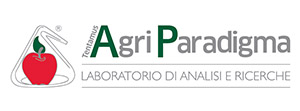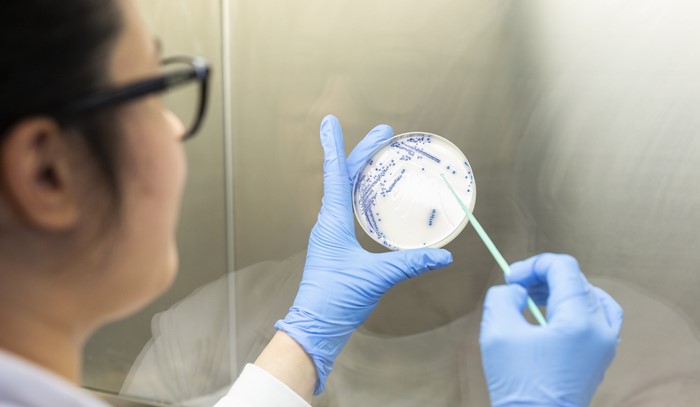The Tentamus Agriparadigma Laboratory in Syracuse is further developing rapid screening methods for the search of pathogens such as Salmonella spp., Listeria spp. and monocytogenes.
According to the 2017 annual RASFF report (Rapid Alert System on Food and Feed), Salmonella is the most important pathogen in the list of European alerts on food and feed. It is an extraordinarily widespread enterobacteriaceae, which is responsible for gastrointestinal infections both in humans and animals. Its treatment is complex as there are more than 2,600 existing serovariants of Salmonella (Salmonella Typhimurium, Enteritidis, Infantis, etc.). Transmission to humans can occur through the ingestion of contaminated food.
However, European alerts do not only concern Salmonella. The European Food Safety Authority (EFSA) has issued several publications related to infectious outbreaks of Listeria monocytogenes, which has caused many events of listeriosis in different European countries since 2015. Listeria monocytogenes is a bacterium widely present in the environment and causes foodborne infection through ingestion of contaminated food.
To perform the screening of these pathogens, the laboratory has developed and accredited official methods, such as:
- UNI EN ISO 11290-1:2017
- UNI EN ISO 11290-2:2017
- UNI EN ISO 6579-1:2020
- Rapid methods such as AFNOR BRD 07/11-12/05 and AFNOR BRD 07/04-09/98

The official methods UNI EN ISO 11290-1:2017, UNI EN ISO 11290-2:2017 and UNI EN ISO 6579-1:2020 require the use of pre-enrichment media, which are rich in nutrients. Particularly for qualitative methods based on an absence/presence screening, high levels of nutrients facilitate the development of the above-mentioned pathogens, allowing their identification in all foods where they are present – however at low levels of contamination.
In well-defined conditions of time and temperature, the parallel use of at least two chromogenic media allows to carry out a first screening to determine any possible negative results of the analysis. If the
results are not negative, these methods involve numerous confirmation tests to validate the presence of pathogens, such as sugar fermentation, Gram-Hucker staining, microscopic morphological analysis, catalase, oxidase and the verification of haemolytic activity.
Through the use of highly selective media and specific initial supplements in the pre-enrichment phase, the AFNOR BRD 07/11-12/05 and AFNOR BRD 07/04-09/98 rapid methods allow a clear chromogenic identification of the pathogenic microorganisms.
- Results can be reported in just 48 hours if they are negative.
- The association with confirmation tests, such as agglutination and sugar fermentation, also allows to complete screening tests in 3-4 working days in case these are positive for Listeria spp., monocytogenes and Salmonella spp.
The laboratory has carried out all performance checks for the above methods in accordance with ISO19036: 2020.
Through the use of the earlier mentioned official methods for the identification of Salmonella spp., Listeria spp. e monocytogenes, the microbiological sector of Syracuse’s laboratory is able to obtain reliable results thanks to the numerous confirmation tests carried out for support. With the high selectivity and specificity of the materials used, the rapid methods AFNOR BRD 07/11-12/05 and AFNOR BRD 07/04-09/98 instead allow to obtain the first results in 48 hours, with only additional 48 hours in case of positivity. The timeliness of reporting allows us to meet the needs of the food sector and the entire supply chain, whose activity is managed according to the high perishable nature of the food itself and the speed of distribution and sale of products.
About Tentamus Agriparadigma in Syracuse
The Tentamus Agriparadigma headquarter in Syracuse (Italy) has been active for 8 years providing services for the agri-food sector with chemical and microbiological analyses on food, livestock feed and drinking water, and surface swabs, as well as on soils for agronomic analysis. The laboratory has several ISO 17025:2018 accreditations and regional, ministerial and foreign (QS – QUALITATSSICHERUNG) certifications.
For more information, please contact:
Dr. Serena De Luca
+39 931-717375
serena.deluca@agriparadigma.it

